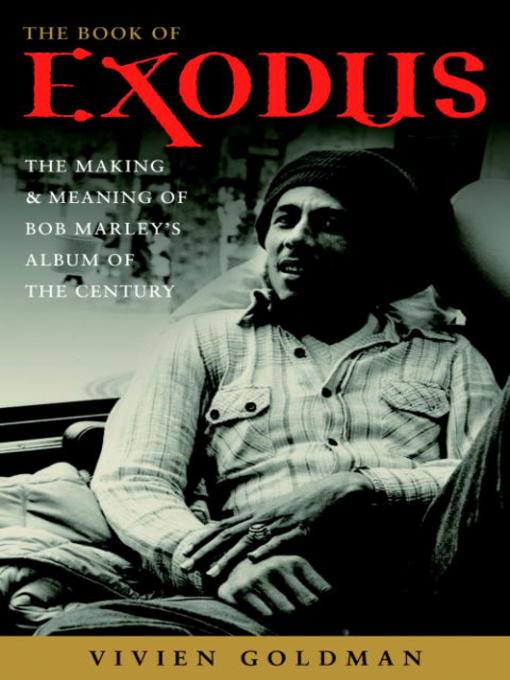
The Book of Exodus
The Making and Meaning of Bob Marley and the Wailers' Album of the Century
کتاب های مرتبط
- اطلاعات
- نقد و بررسی
- دیدگاه کاربران
نقد و بررسی

April 10, 2006
In this dense but well-written work, veteran journalist Goldman examines the cultural, political and violent roots of Bob Marley's classic record Exodus
. Goldman is undeniably as intrepid and insightful as music journalists come—and this effort clearly required every ounce of her talent. In setting the stage for what would become Marley's masterpiece, she reached beyond the Exodus
sessions themselves into the early history of Marley and the Wailers, into the hornet's nest of Jamaican politics and the island's international history and African history, as well as the mystical, often contradictory, tenets of Rastafarianism. It is all necessary background for what made Marley both the searing performer he was and the iconic figure he would become—a fame that would nearly kill him. Just days before a planned free concert in 1976, Marley, his wife, Rita, and Don Taylor were wounded by gunmen, forcing Marley to flee to London, where Exodus
was recorded. This is no pop music hagiography but a brimming, tightly constructed examination not just of Marley's life and music but of human nature itself and the struggle for freedom. The more casual fans of Marley may not follow; those who do will see deeper into the man and his music than ever before.

April 1, 2006
This May marks the 25th anniversary of reggae superstar Bob Marley -s death; to mark the occasion, many publishers are issuing new material on the artist. Goldman -s account of the recording of Marley -s famous 1976 album, Exodus, joins a crowded field of more than 50 biographies. It stands out owing to the author -s tight prose, attention to detail, and insider access. A British music journalist who was present during a lot of key points in the process, she draws on her archival tapes and new interviews with Marley -s friends, associates, and Wailers bandmates; enough reggae background is woven into the narrative to show the significance of the album, and an entire chapter is devoted to the meaning and recording of each song. Goldman -s description of Marley -s near-assassination in Jamaica and later exile in England better detail those events than standard biographies. Thus, this book is a good addition to the long-acknowledged best biography, Timothy White -s Catch a Fire. Recommended for all large reggae collections and academic music libraries covering Caribbean popular music." -Bill Walker, Stockton -San Joaquin Cty. P.L., CA"
Copyright 2006 Library Journal, LLC Used with permission.

April 15, 2006
Goldman thoroughly examines what " Time" proclaimed album of the twentieth century, Bob Marley's " Exodus," undertaken at a time when Marley had relocated to London, where he wrote and recorded " Exodus," after becoming a gunshot victim during an invasion of his Kingston, Jamaica, home. Goldman navigates the myriad political, social, and religious complications in Marley's life then, all of which he dealt with in "The Heathen," "So Much Things to Say," and the album's title song, whose naming was no throwaway gesture. Marley felt especially spiritually attached to the second book of the Old Testament, and Goldman cites his frequent quotation of scripture within the context of him giving form to his most political album. Since Goldman accepts at face value Marley's belief in dream communication and prophecy, his fans will be rewarded by a satisfying heavy dose of the "Natural Mystic" philosophy of Rastafarianism, too. Excellent insight into the genesis of a transporting piece of music; as fellow reggae immortal Lee "Scratch" Perry would say, "Righteous oily."(Reprinted with permission of Booklist, copyright 2006, American Library Association.)

























دیدگاه کاربران